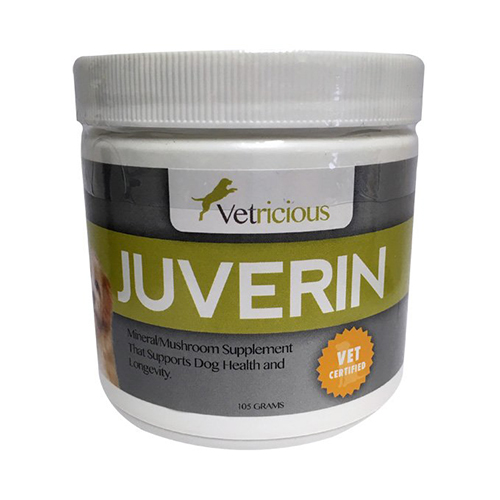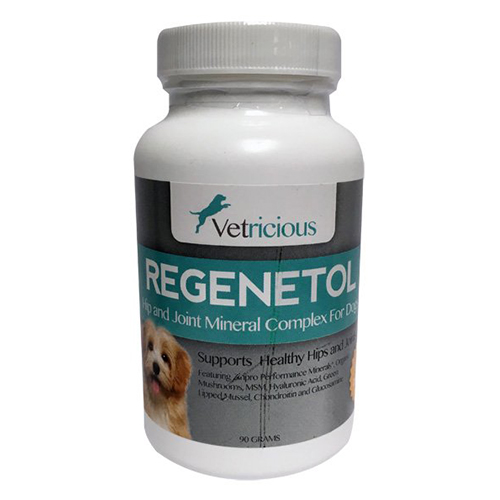11
As a dog owner you’re probably no stranger to the joyous feeling of watching an overactive pup transform into a wise old dog overnight. However, as your dog grows older it’s only natural that some of that joy will become fear.
You may notice that they spend less time playfully chasing the neighbour’s cat. Or maybe they find it difficult to keep up with you on your evening runs. Then there’s the rapid hair loss and the bad breath.
All of these are signs that your dog is aging and requires more attention.
Nowadays dogs live to be much older. However, like humans, good nutrition and proper health care are needed to maintain their quality of their life as they get older. In this post we’ll discuss a few questions that you should address as your dog grows older.
When Is My Dog Considered A Senior?
We all love to throw around the phrase “dog years” but this all depends on what breed your dog is. For instance, smaller dogs like toy poodles and shitzus can easily make it to their 15th birthday before the perils of old age ties them down. On the other hand, mortality tends to catch up with giant breed dogs (e.g. Great Dane or Bernese mountain dog) within six to seven years. Medium-sized dogs between 30 and 50 pounds, such as corgis and cocker spaniels, will generally make it up to 8-10 years.
What Are Some Physical Indicators That My Dog Is A Senior?
They grow up so fast that it’s normal that you may overlook signs of aging. If you think that your dog is getting old then look out for jutting hip bones, increased sleepiness, decreasing activeness, shivering, graying hairs, etc. While it may be easy to spot these signs, other signs may be more discreet. For instance, due to their weakened immune system, older dogs tend to develop eyelid tumors, bumps, and lumps. Their eyesight and hearing ability may also become weaker. Without proper observation it’s likely that you may miss these signs. Therefore it is important that you give your dog the attention that he/she warrants.
Should I Expect Mental Changes As My Dog Ages
Some dogs become more aggressive as they age while others become more sociable. You may also find that their appetite lessens and they begin urinate or defecate inside the house.
Can My Dog Get Alzheimer’s?
We often blame Alzheimer’s for those strange behaviors that our dogs begin to display after as their brain ages; however, the correct term is cognitive disorder syndrome. With CDS your dog may start wandering strange places or forget how to climb the staircase. Their senses will also be affected. In many ways, it’s like they’re just like a puppy whose eyes have just started to open.
Your vet should be able to tell you if your dog has CDS. He/she will need information on your dog’s medical history. Physical examinations as well as x-rays, ultrasounds, and routine blood tests, can all ensure an accurate diagnosis. If diagnosed with CDS, behavioral therapy and prescription medications can help your dog. Selegiline hydrochloride, which is a drug developed for Alzheimer’s and Parkinson’s disease in humans, is used for treating some cases of disease. It’s marketed under the name Anipryl for dogs and is said to be effective at enhancing the activeness of your dog’s remaining dopamine.
What Common Health Issues Will Arise As My Dog Ages?
According to the American Veterinary Medical Association (AVMA), nearly half the number of dogs who make it to 10 years will die of cancer. Other common health issues that affect dogs include: heart failure, diabetes, renal failure, and kidney disease. Observe your dog carefully. Most times you’ll be able notice specific symptoms that could tell you if they are suffering from a disease and not just old age.
Regular visits to the vegetarian are imperative during the later years of your dog’s life. Liver disease, diabetes, and kidney failure are common among older dogs and are better treated if diagnosed early.
Should I Change My Dog’s Diet with Old Age?
Nutritional tips for dogs change as they leave puppy life behind them and become older. For instance, some vets urge their clients to reduce protein intake as their dog ages. However, there is also another school of thought that advises more protein for your dog as he or she ages.
Regardless, it’s important to change your dog’s diet as they age and all breeds are a little different- so always check with a pet nutritionist or your vet. Many breeds will require less fat and a reduced amount of calories. This is to prevent other health issues like obesity, especially considering that older dogs gain weight more easily. Your vet should be able to advise you on what foods to reduce or increase based on your dog’s health.
What Can I Do To Make My Dog’s Senior Years Easier?
Simple things such as carpeting the living room to prevent them from falling or upgrading their bed to an orthopedic heated bed can make all the difference.
Many dogs become extremely dehydrated during their later years. Try adding a drinking fountain somewhere in your home to encourage them to drink more water.
If your dog has lost their appetite then try heating up their food more. If you’re serving dry food for dinner then add some water and let it sit in the microwave for 10 seconds to release the flavors. This will appeal to your dog’s sense of smell and taste that’s are no longer working as they should.
Add a Food Booster like Juverin to his food daily- when he is older, he really needs proper nutrition so he is able to fight off old age!
Also, social interaction is just as important to your dog as it is to you. It’s a great way for them to deal with stress (Yes! Stress). Allowing your dog to interact with the neighbor’s dog will not hurt. In fact, research has shown that dogs in multiple-pet households are happier and don’t get sick as easily.
Do I Still Need To Get My Senior Dog Vaccinated Yearly?
You’re not the only one asking this question. Most pet caretakers do.
The practice of vaccinating older dogs annually is very controversial. Some vets believe that annual vaccination is essential as your dog ages. This is mainly due to their weakened immune system.
However, others believe that annual vaccines could cause immune diseases and allergic reactions since they last longer in the bodies of older animals.
Despite their contradicting opinions one thing most veterinarians will agree on is that you should get your dogs vaccinated for any disease that they’re susceptible to. In the past, vaccines followed a one size fits all protocol irrespective of age or lifestyle. However, today vaccines are more personalized to meet the unique lifestyle, medical history, age, and community requirements of each pet.
The law requires some vaccines (such as rabies) to be administered annually.
Are There Medications That Can I Help My Senior Dog Get His Spark Back?
There are many excellent medications on the market that your vet can administer or recommend for your dog. Adequan injections have long been used effectively for treating arthritis and joint related diseases in dogs. There are also medications that can help older dogs cope with depression. If you want to go the Natural Way, then Regenetol is a terrific mixture of mushrooms that they even give to multi million dollar race horses- so it must work- right?
Slentrol (dirlotapide), an FDA approved drug, is becoming a popular medication for overweight senior dogs who have lost their groove. It works by preventing some of the fat that your dog eat from being absorbed.
With age your dog may begin to develop separation anxiety, especially if they are left alone for an extended duration. Reconcile (a chewable form of Prozac), is an amazing drug used for treating anxiety in dogs.
Should I Start Feeding My Dog Any Supplements?
When it comes to feeding your dog supplements the one size fits all rule does not apply. it’s important to have your veterinarian recommend a specific supplement that may improve your dog’s health.
The nutritional needs of older dogs differ from younger ones. It’s important to have your veterinarian recommend a specific supplement that may improve your dog’s health. Our Vet recommends, Regenetol for joints and Juverin Food Booster for immune health and digestion.
Supplements are important if they are not getting the nutrients that they need from their diet.
There are many other excellent natural remedies that are known for their ability to improve joint health and combat problems like arthritis. These natural supplements are great because they help to get your old friend back on his paws and ready to run, jump, and play.
Methylsulfonylmethane, more commonly known as MSM, is a fully organic compound that contains sulphur. It has been know to alleviate joint related issues and even various autoimmune diseases that affect older pets.
Other similar natural supplements that are great for joint health and providing energy are: Glucosamine and Chondroitin Sulfate, green lipped mussels, turmeric, Hyaluronic Acid.
Speak with your vet to find out exactly what supplements your dog requires.
Being a pet owner is a joyous experience. Even as your dog ages it is still possible to continue to enjoy their company once you’re willing to put in a little extra work. Try to bring back some spark into their daily activities instead of watching them mope away.
Snuggle up with your dogs at night or talk them on a stroll to the park to meet new friends. Simply make the best of every moment you have with your pup.
Source: PetMD, WebMD, American Veterinary Medical Association





